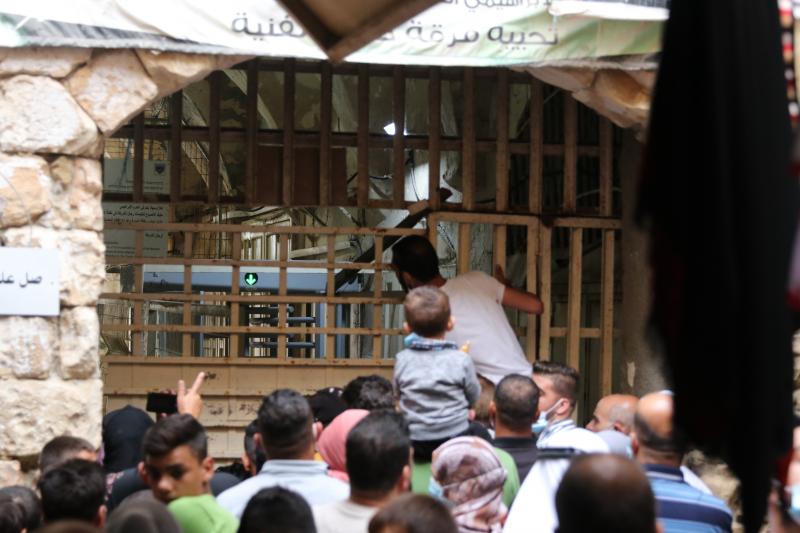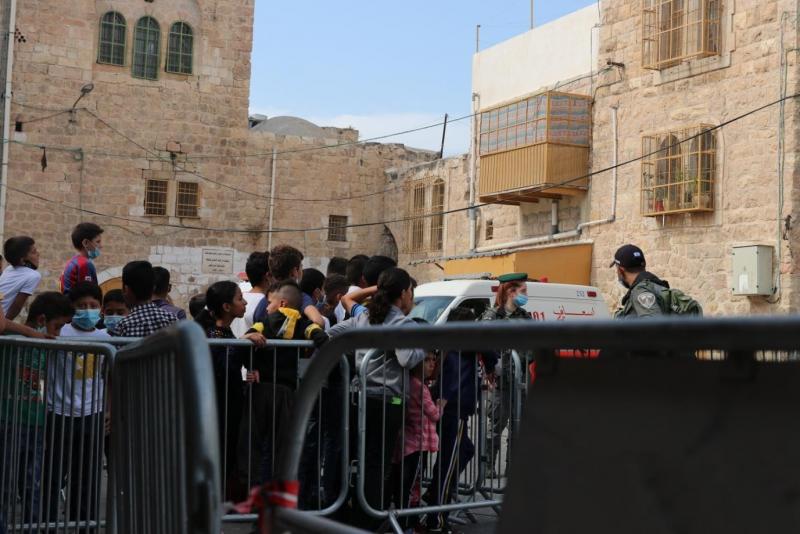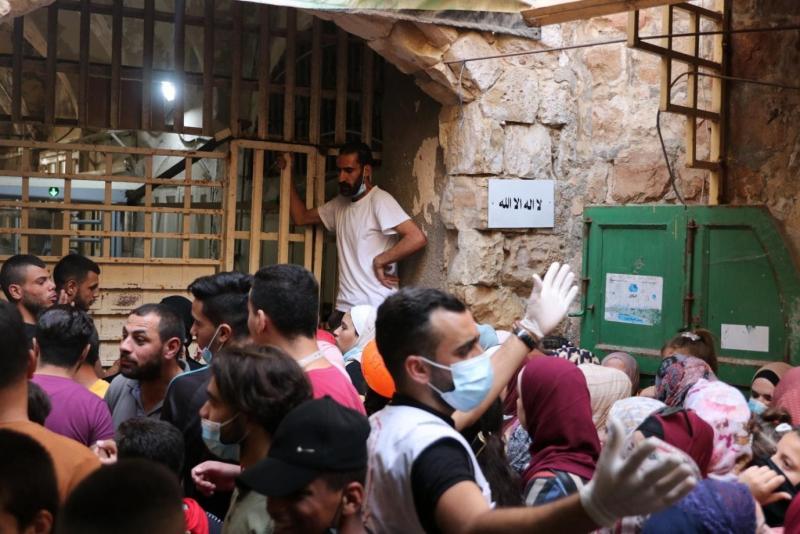Mawlid Nabawi, observed on 29 October this year, is an important day for Muslims all over the world as they celebrate the birth of the Prophet Mohammed.
This day is extra special in Hebron because the city is home to Al-Ibrahimi Mosque, which Muslims consider one of the four most important sites in the Islamic religion. People from different Palestinian cities around the West bank, as well as Muslim tourists from around the world, come to Hebron to celebrate this day and to visit Al-Ibrahimi Mosque in the old city. The mosque has been divided into two parts since 1994 after an Israeli settler committed a massacre inside the mosque and Israeli settlers and Jewish visitors have exclusive access to more than half of the site including all of the surrounding gardens. But on this day, the Israeli army allows Palestinians to visit the occupied part of the mosque.
Since the outbreak of COVID-19 the number of people visiting the mosque decreased, and the virus was another way for the Israeli military to create more restrictions against Palestinians.
I arrived at the mosque checkpoint before the beginning of noon prayer and I was shocked by the huge number of Palestinians waiting outside the checkpoint for the Israeli border police to open it so they can visit the mosque during this special day and practice one of the main basic rights for a human being, the right to worship.

Thirty minutes passed and the checkpoint was still closed so people started to sing a special religious song while they were waiting. A few minutes later Israeli soldiers became violent outside the checkpoint, pushing people away without caring about children and the elderly. Then they closed the main checkpoint gate.
Later an Israeli officer announced that they will allow 50 people at a time to go inside the mosque to pray and then to leave, justifying his decision with the COVID-19 situation and social distancing protocols. Meanwhile, hundreds of people were waiting together outside for the checkpoint to open, which negates his reasoning for limiting access.
Time goes by while my colleague and I decide to reach the mosque area from a different checkpoint located in the southern side of the Old City of Hebron but the same procedures apply to all checkpoints leading to the mosque. During the time we spent trying to reach the mosque area I couldn’t stop thinking about how basic human rights like the right for worship are violated every day.
After a long detour, we finally arrived at the mosque and I was shocked by what I saw. I noticed iron barriers blocking and dividing any possible way to reach the mosque and three Israeli border police detaining a group of Palestinian children inside iron barriers which formed a cage. As a Palestinian who learned about the holocaust, the first thing came to my mind while witnessing this treatment in 2020, is how Nazis caged Jewish people during the Second World War. To put it simply, I saw history repeat itself.

Finally the day was over, and despite all the strong feelings that arose one feeling was stronger than the others: when the sun rises it rises for everyone, nothing lasts forever.




